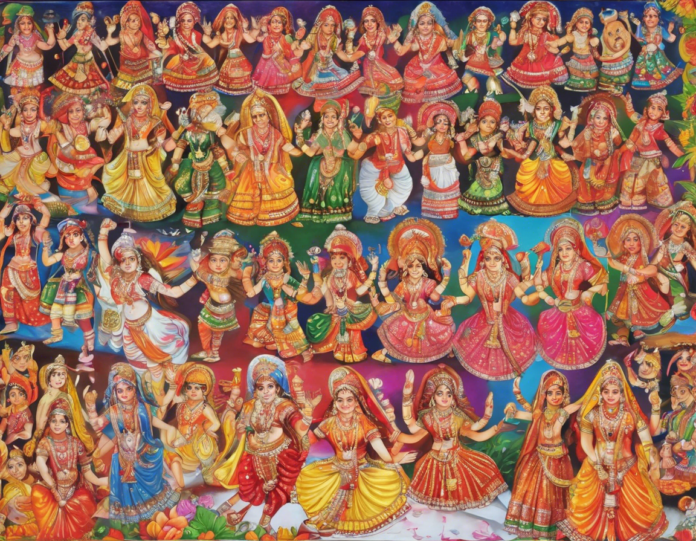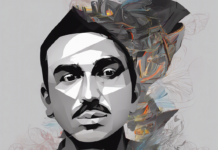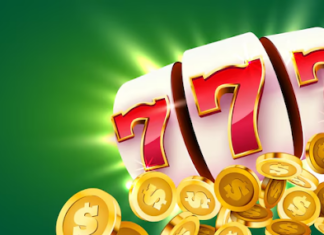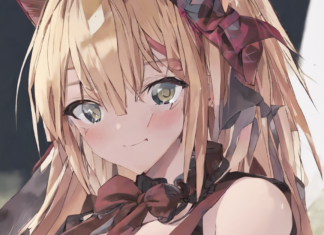Navratri, a festival celebrated with much fervor and enthusiasm in India and among Hindus worldwide, is a nine-night long festival dedicated to the worship of the Goddess Durga in her various forms. The word ‘Navratri’ is derived from ‘Nav’ meaning nine and ‘Ratri’ meaning night, which translates to the nine nights of celebration. Each night during this festival is dedicated to one of the nine forms of Goddess Durga.
Navratri Dates and Significance
1. Navratri Dates
Navratri is celebrated four times a year, with the Chaitra Navratri and Sharad Navratri being the most significant ones. Here are the dates for Navratri in 2022:
- Chaitra Navratri: April 2nd, 2022 – April 10th, 2022
- Sharad Navratri: October 1st, 2022 – October 10th, 2022
2. Significance of Navratri
-
Worship of Goddess Durga: Navratri is dedicated to the worship of Goddess Durga, the epitome of feminine power, who symbolizes courage, strength, and protection.
-
Victory of Good Over Evil: It is believed that during these nine nights, Goddess Durga battles the demon Mahishasura and emerges victorious on the tenth day, which is celebrated as Vijayadashami or Dussehra.
-
Fasting and Prayer: Devotees observe fasting and offer prayers to seek the blessings of the Goddess. It is believed that by fasting and meditating during this time, one can purify the mind, body, and soul.
-
Cultural Celebrations: Navratri is also a time for vibrant cultural celebrations, including Garba and Dandiya Raas dances, which are traditional folk dances performed in colorful attire.
Celebrations During Navratri
During Navratri, Hindus across the world participate in various rituals and traditions to honor Goddess Durga and seek her blessings. Some key customs and celebrations include:
1. Ghatasthapana**
-
The festival begins with Ghatasthapana, the installation of a sacred pot symbolizing the presence of the Goddess in the house. This pot is filled with water and is adorned with mango leaves and a coconut on top.
-
Kalash sthapana is a significant ritual performed during this time, symbolizing the divine presence of Goddess Durga in the house.
2. Durga Puja**
-
Durga Puja, dedicated to Goddess Durga, involves ritualistic prayers, offerings, and arti performed by priests and devotees.
-
Devotees visit pandals where elaborately crafted idols of Goddess Durga are installed and worshipped with great devotion.
3. Garba and Dandiya Raas**
- In states like Gujarat and Rajasthan, Navratri is synonymous with Garba and Dandiya Raas, where people dress in traditional attire and engage in colorful, energetic dances to celebrate the festival.
FAQs – Frequently Asked Questions
1. What is the significance of Navratri fasting?
Fasting during Navratri is believed to cleanse the body and mind, and invoke blessings from Goddess Durga. It is also a way to practice self-discipline and focus on spiritual growth.
2. Can anyone observe Navratri fasting?
Navratri fasting can be observed by devotees of all ages, although pregnant women, individuals with health conditions, and young children are often exempt. It is important to consult with a healthcare professional before undertaking any fast.
3. How is Navratri celebrated in different regions of India?
Navratri is celebrated with unique customs and traditions across India. In Gujarat and Maharashtra, Garba and Dandiya Raas are popular, while in West Bengal, Durga Puja is the main celebration.
4. What are some common foods eaten during Navratri fasting?
During Navratri fasting, vegetarian foods like sabudana khichdi, kuttu ka atta (buckwheat flour), singhara atta (water chestnut flour), fruits, and dairy products are commonly consumed.
5. What is Kanya Pujan during Navratri?
Kanya Pujan, also known as Kanjak or Kumari Puja, is a ritual where young girls are worshipped as manifestations of the Goddess. They are offered gifts and prasad as a symbol of respect and devotion.
Navratri is a time of joy, devotion, and spiritual rejuvenation for millions of Hindus around the world. By honoring Goddess Durga and observing traditions and rituals during this auspicious festival, devotees seek blessings, prosperity, and protection for themselves and their loved ones.









